12 Best RF Smart WMS Alternatives in 2025

- Understanding RF Smart WMS and the Need for Alternatives
- Key Considerations When Evaluating RF Smart WMS Alternatives
- Swift – No-Code, Multi-Cloud ERP & App Automation
- Oracle WMS Cloud
- Manhattan Associates WMS
- JDA Software (Blue Yonder) WMS
- Softeon WMS
- HighJump (Kuebix) WMS
- NetSuite WMS
- Fishbowl Inventory
- Tecsys WMS
- Locus WMS
- 3PL Central
- Korber WMS
- Why Swift is the Best RF Smart WMS Alternative in 2025
- Choose Swift for a Future-Proof Solution
Seamless Workflow Automation, Mobility, and Process Monitoring
Warehouse management systems (WMS) are playing a bigger role as businesses push to streamline logistics, improve inventory control, and maximize operational efficiency in 2025. RF Smart WMS is a widely recognized solution for real-time inventory tracking, order fulfillment, and warehouse automation. However, as warehouse operations become more complex, businesses are exploring alternatives that offer better scalability, flexibility, and integrations with other enterprise systems.
This post delves into 12 of the best RF Smart WMS alternatives in 2025, offering businesses a range of options based on their needs, whether for smaller operations or large, multi-location warehouses.
Understanding RF Smart WMS and the Need for Alternatives
RF Smart WMS offers a mobile-first solution that integrates with various ERP systems to enhance warehouse efficiency. It enables barcode scanning, real-time inventory management, and streamlining processes like picking, packing, and shipping. While RF Smart WMS is an excellent solution, it may not fit every business’s evolving needs, especially as operations grow or become more specialized.
Some reasons businesses seek alternatives to RF Smart WMS include:
- Integration with Other Systems: RF Smart WMS is highly integrated with specific ERP systems (like Oracle and Microsoft Dynamics), but some businesses may need a WMS that works with a broader range of ERPs or legacy systems.
- Scalability: As warehouses expand and diversify, RF Smart WMS may not offer the flexibility required to handle high volumes of transactions or multi-location operations.
- Customization Needs: While RF Smart WMS provides great out-of-the-box features, some businesses may need more customization to align with their specific workflows.
- Cost: The pricing structure of RF Smart WMS may be too high for smaller companies or businesses with simpler warehousing needs.
Key Considerations When Evaluating RF Smart WMS Alternatives
When evaluating alternatives to RF Smart WMS, businesses should consider the following:
- Scalability: Can the solution grow with the business as it expands in terms of volume, location, and complexity?
- Ease of Integration: How easily does the WMS integrate with existing ERP, CRM, and other business systems?
- Customizability: Does the WMS provide enough flexibility to customize workflows and features for specific needs?
- Mobile and Real-Time Capabilities: Is the WMS optimized for mobile devices, offering real-time inventory tracking and warehouse operations?
- Pricing and Flexibility: Does the solution offer a pricing model that works for the business’s budget and scale?
1. Swift – No-Code, Multi-Cloud ERP & App Automation
Swift stands out as a versatile low-code platform that empowers both technical and non-technical users to rapidly design, deploy, and scale applications. Unlike RF-SMART WMS, which primarily focuses on warehouse management functionalities, Swift extends its capabilities to end-to-end business automation, AI-driven development, and seamless integrations with existing technology stacks.
This versatility enables businesses to automate complex processes and integrate with third-party tools effortlessly, driving significant improvements in workflows and customer experiences.
Why Swift?
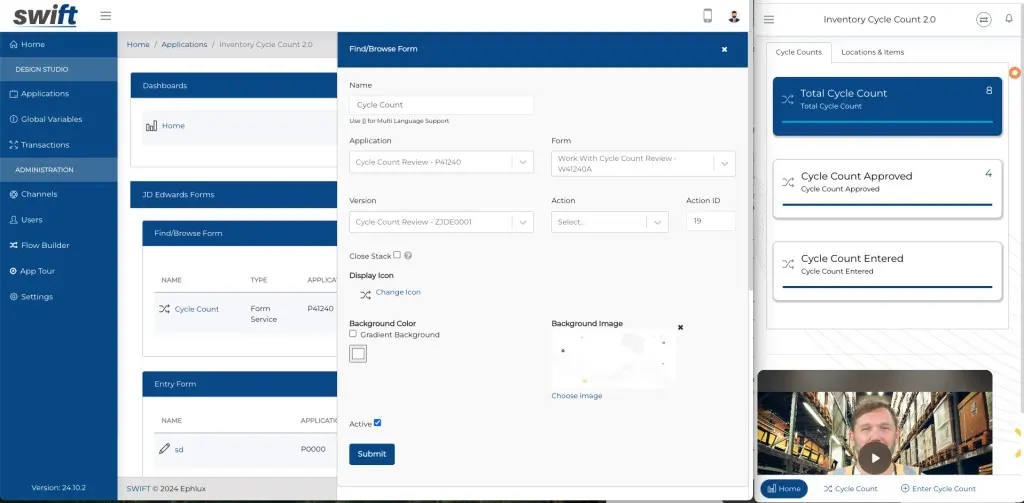
- AI-Powered Development: Accelerate app creation with intelligent features.
- Seamless Integrations: Integrate with your existing business systems and tools.
- Scalable & Flexible: Build applications that grow with your business.
- Customizable Solutions: Tailor your apps to your specific business needs.
- Intuitive & Easy-to-Use: Drag-and-drop interface makes development accessible to everyone.
- Cost-Effective: Flexible pricing that suits businesses of all sizes.
2. Oracle WMS Cloud
Oracle WMS Cloud is a highly scalable solution best suited for large enterprises already integrated into the Oracle ecosystem. However, Swift offers a more flexible, cloud-native solution with a streamlined user interface and quick deployment. Swift is easier to integrate with various third-party platforms, offering greater agility for companies of all sizes, not just those committed to Oracle products.
Why Oracle WMS Cloud?
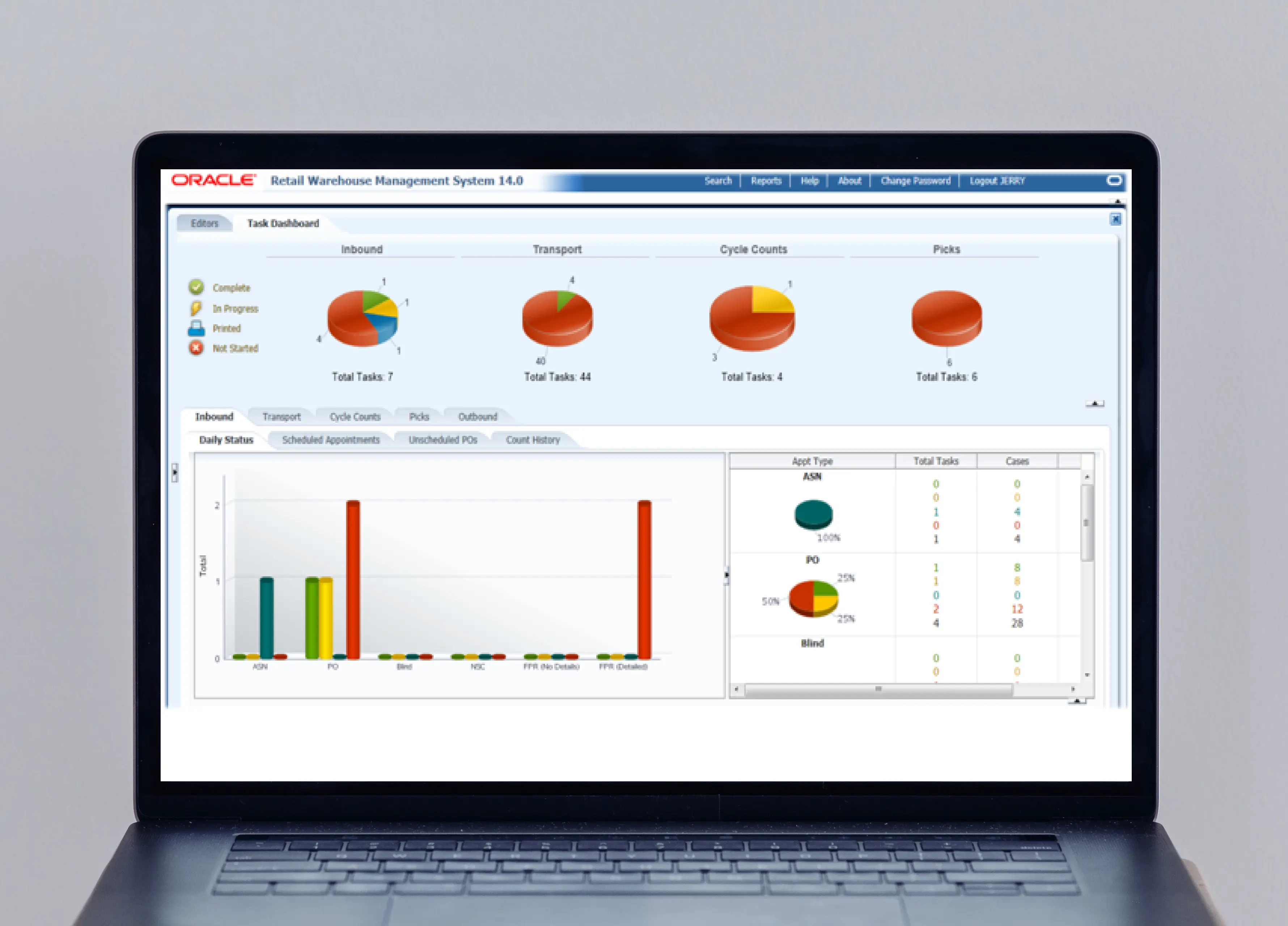
- Highly scalable for large enterprises.
- Strong integration with Oracle ERP systems.
- Cloud-based solution offering flexibility.
3. Manhattan Associates WMS
Manhattan Associates WMS excels in warehouse optimization for complex supply chains, but Swift provides an intuitive, adaptable approach that doesn’t require specialized knowledge to operate. Swift’s seamless scalability means it’s suited for both large and smaller businesses, offering excellent value and ease of use compared to the more complex and potentially expensive Manhattan system.
Why Manhattan Associates WMS?
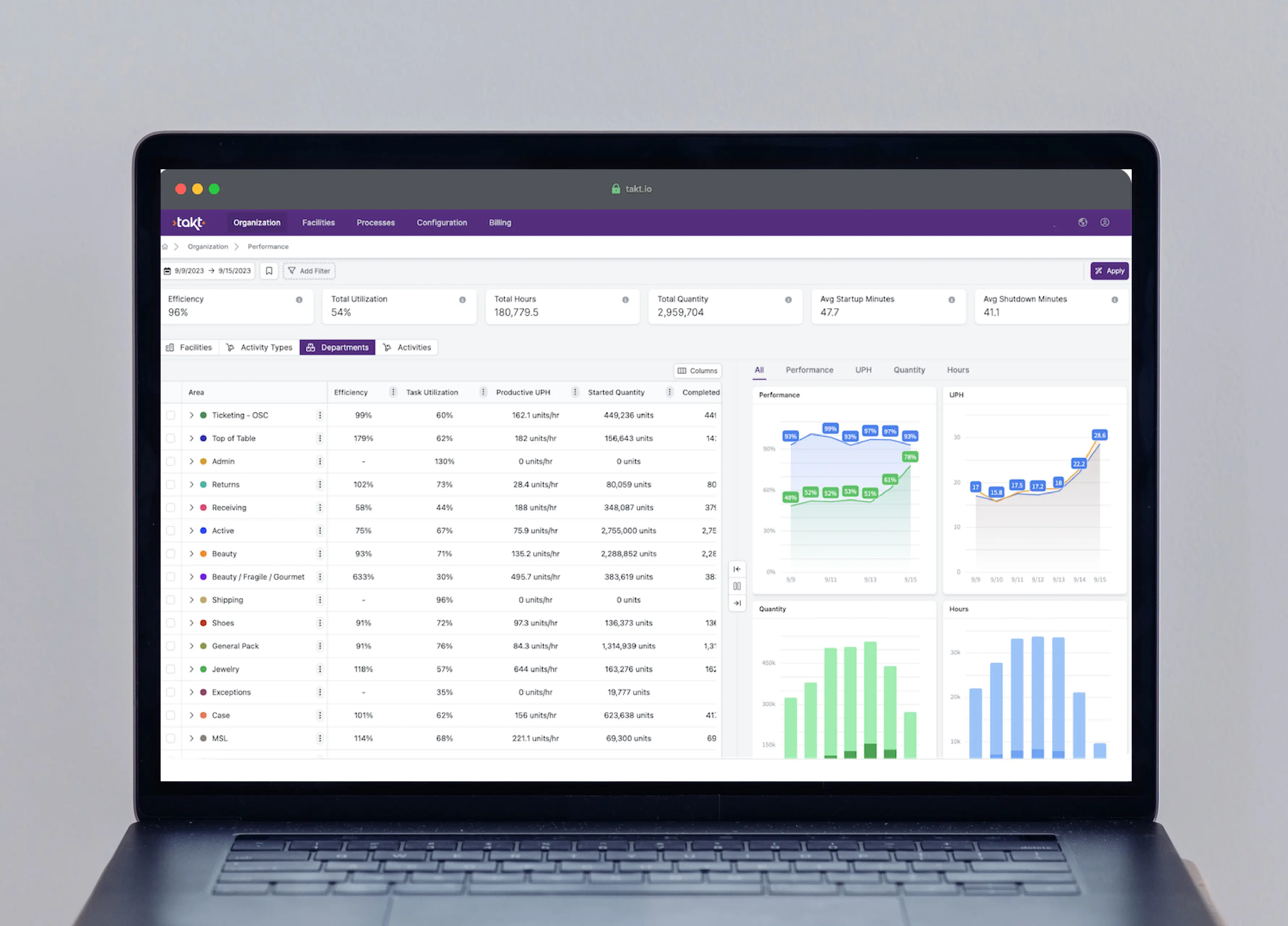
- Comprehensive features for warehouse and supply chain optimization.
- Good for industries with complex supply chains.
- Automation and real-time visibility.
4. JDA Software (Blue Yonder) WMS
Blue Yonder leverages AI and predictive analytics, making it a strong choice for forward-thinking companies. Swift, on the other hand, integrates AI in a more accessible way, allowing businesses to implement advanced technology without the steep learning curve or cost often associated with Blue Yonder’s platform. Swift also offers stronger flexibility, making it easier to customize.
Why Blue Yonder?
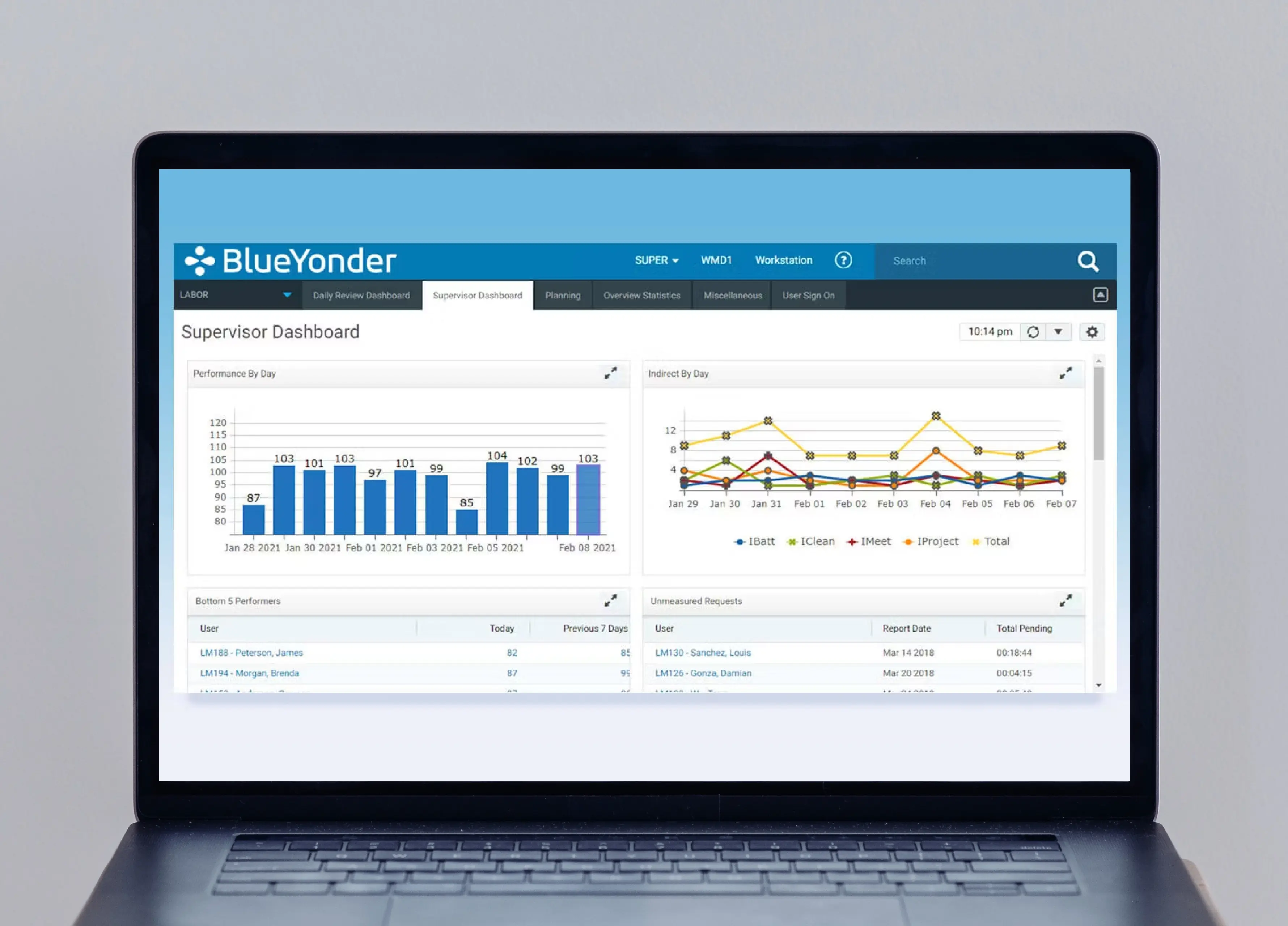
- AI-driven analytics for predictive optimization.
- Scalable and flexible to handle complex supply chains.
- Good for businesses looking to incorporate AI into their operations.
5. Softeon WMS
While Softeon offers a high level of customization and modularity, Swift brings similar levels of flexibility with a simpler, more user-friendly interface and quicker implementation. Swift’s cloud-native design ensures faster scaling and integration, making it ideal for businesses seeking a tailored WMS solution without the need for complicated configurations.
Why Softeon WMS?
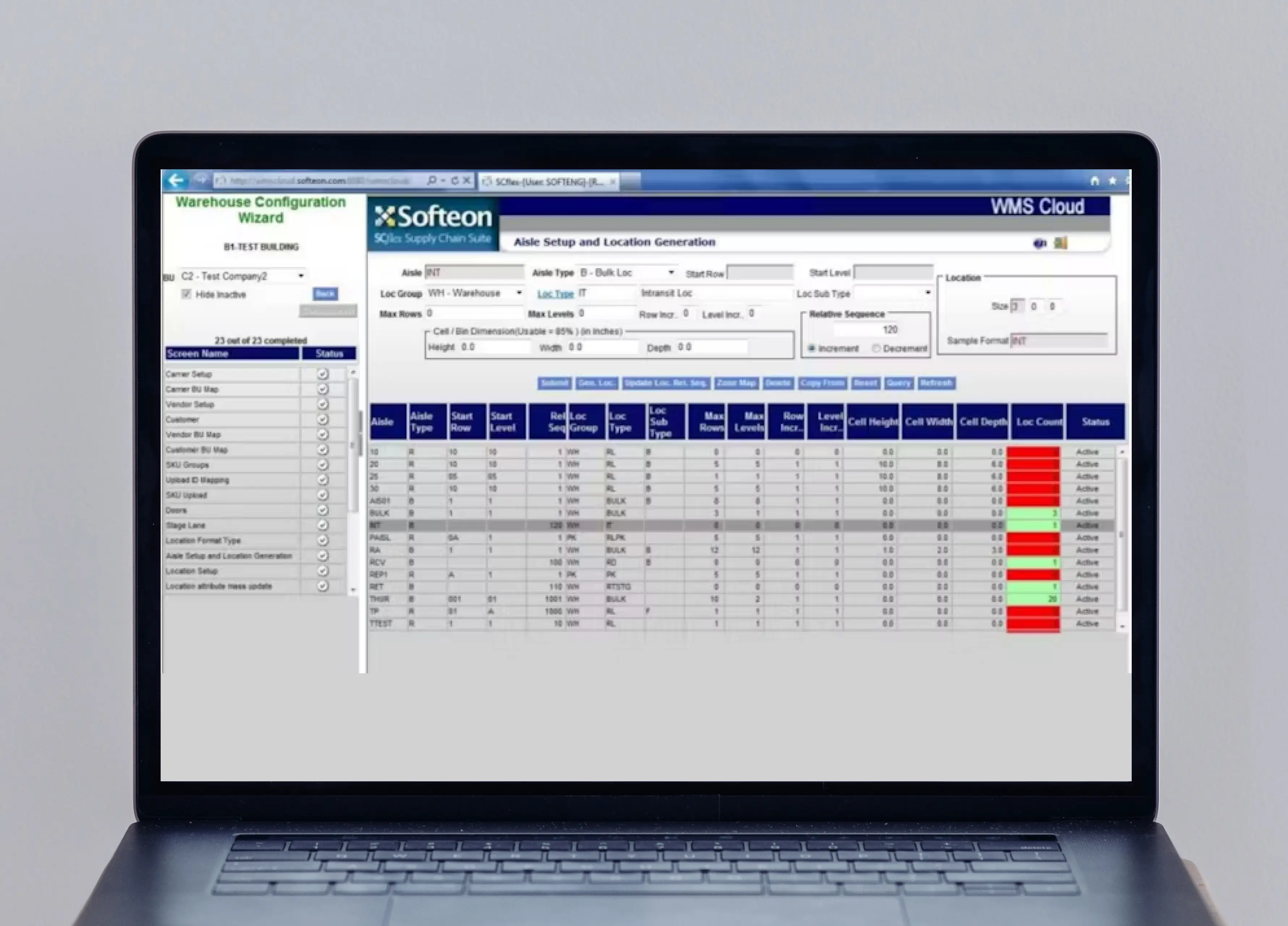
- Flexible and customizable.
- Modular design allows businesses to pick and choose feature.
- Good for businesses that need a tailored WMS.
6. HighJump (Kuebix) WMS
HighJump is known for being user-friendly and fast to implement, but Swift takes it a step further with a cloud-native, highly customizable solution that provides quicker integration with existing systems. Swift’s flexibility ensures it can evolve with businesses as they grow, offering long-term value that HighJump may not be able to match in complex or growing enterprises.
Why HighJump?
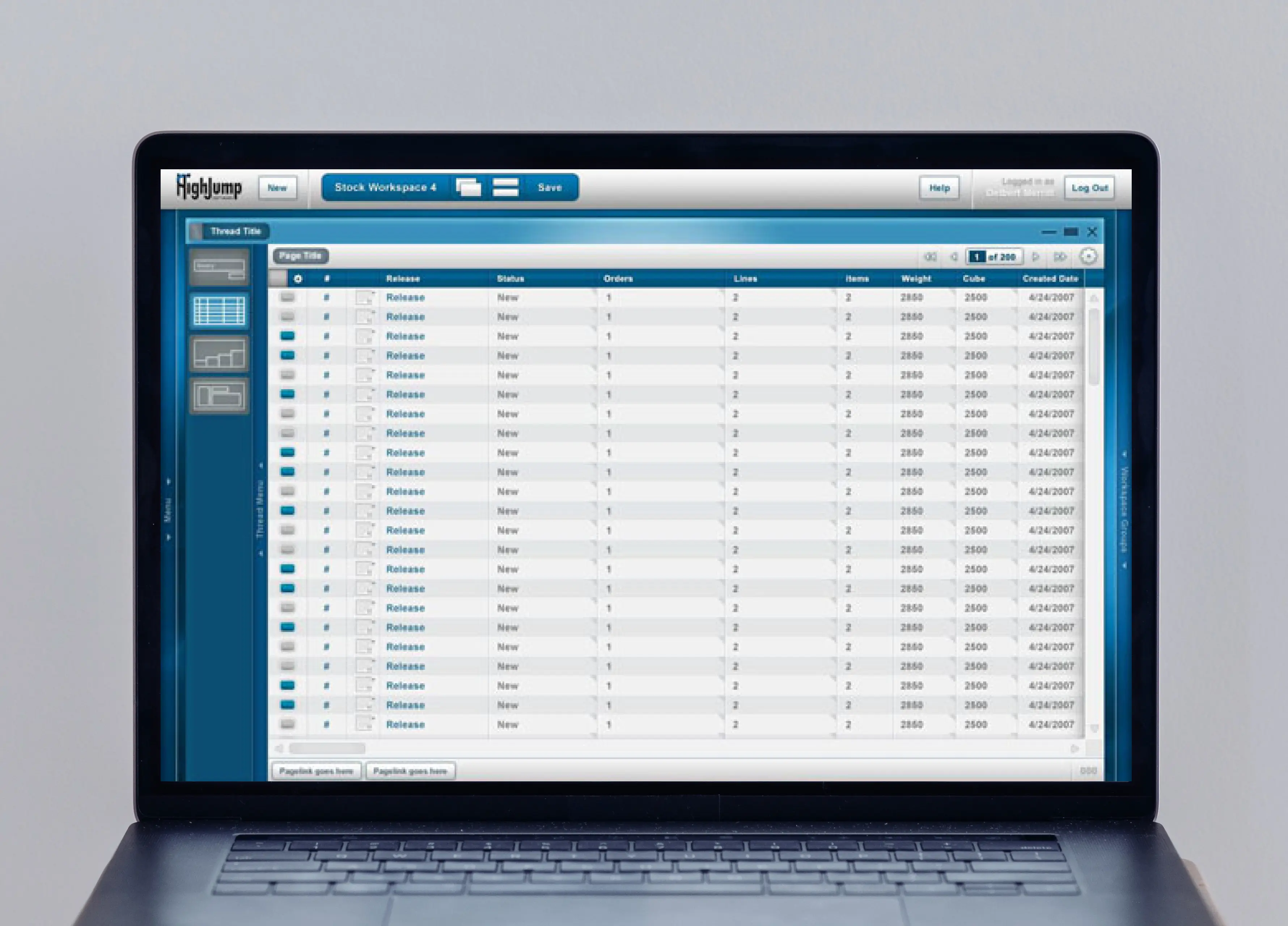
- Cloud-based with fast implementation.
- User-friendly interface for easier adoption by non-technical users.
- Scalable for both small and large operations.
7. NetSuite WMS
NetSuite WMS integrates well with NetSuite ERP, but Swift supports broader integration across multiple platforms and ERPs. Swift’s ability to connect with various software solutions without being tied to a single ecosystem makes it a more versatile choice for businesses seeking flexibility and long-term scalability.
Why NetSuite WMS?
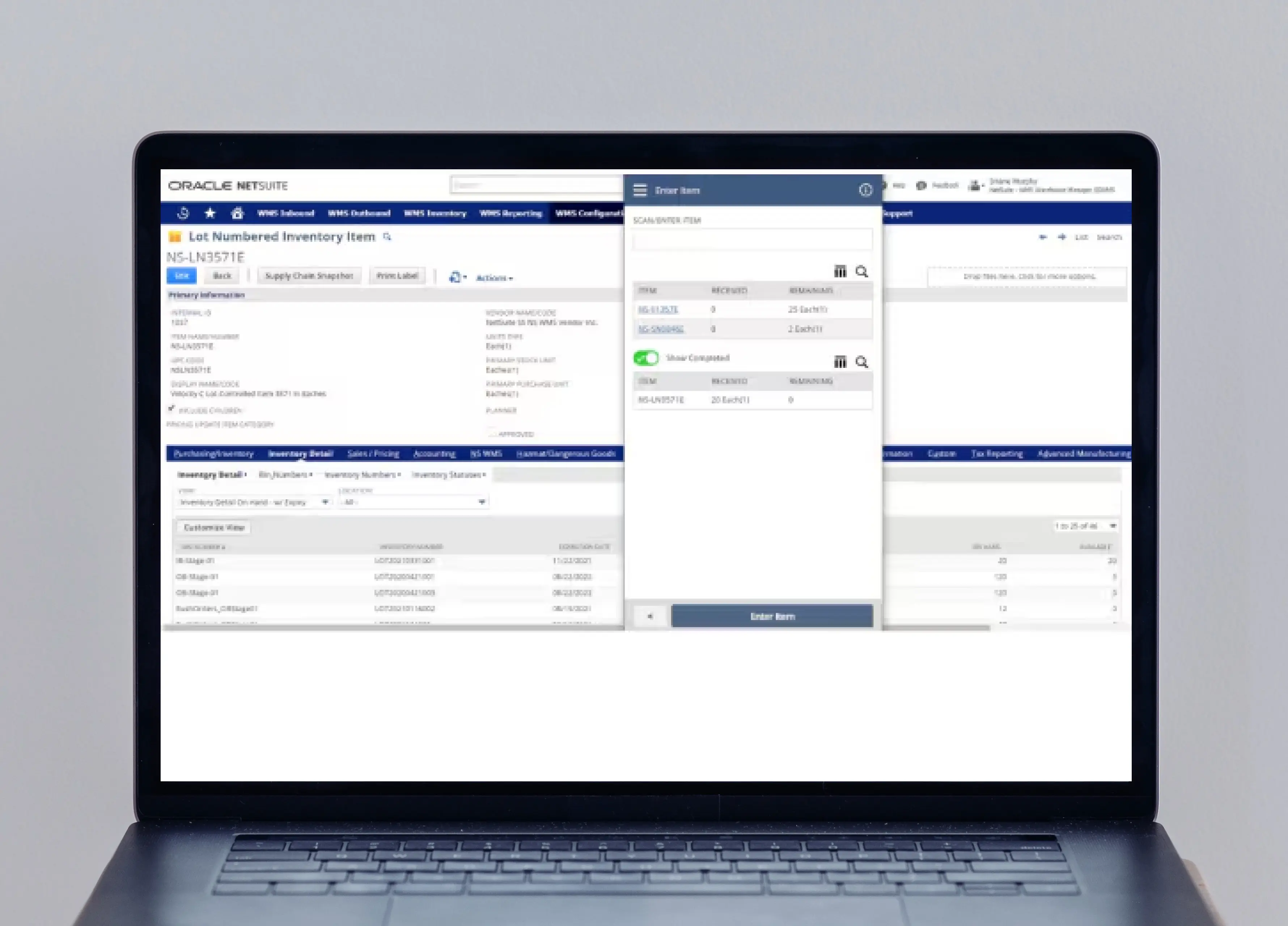
- Seamless integration with NetSuite ERP.
- Cloud-based for flexibility and scalability.
- Good for small and medium-sized business.
8. Fishbowl Inventory
Fishbowl is an affordable and easy-to-use option for small businesses, but Swift provides a more comprehensive set of features with better scalability for growing businesses. While Fishbowl is a great starting point, Swift can support businesses as they scale, offering advanced features without a steep price increase.
Why Fishbowl Inventory?
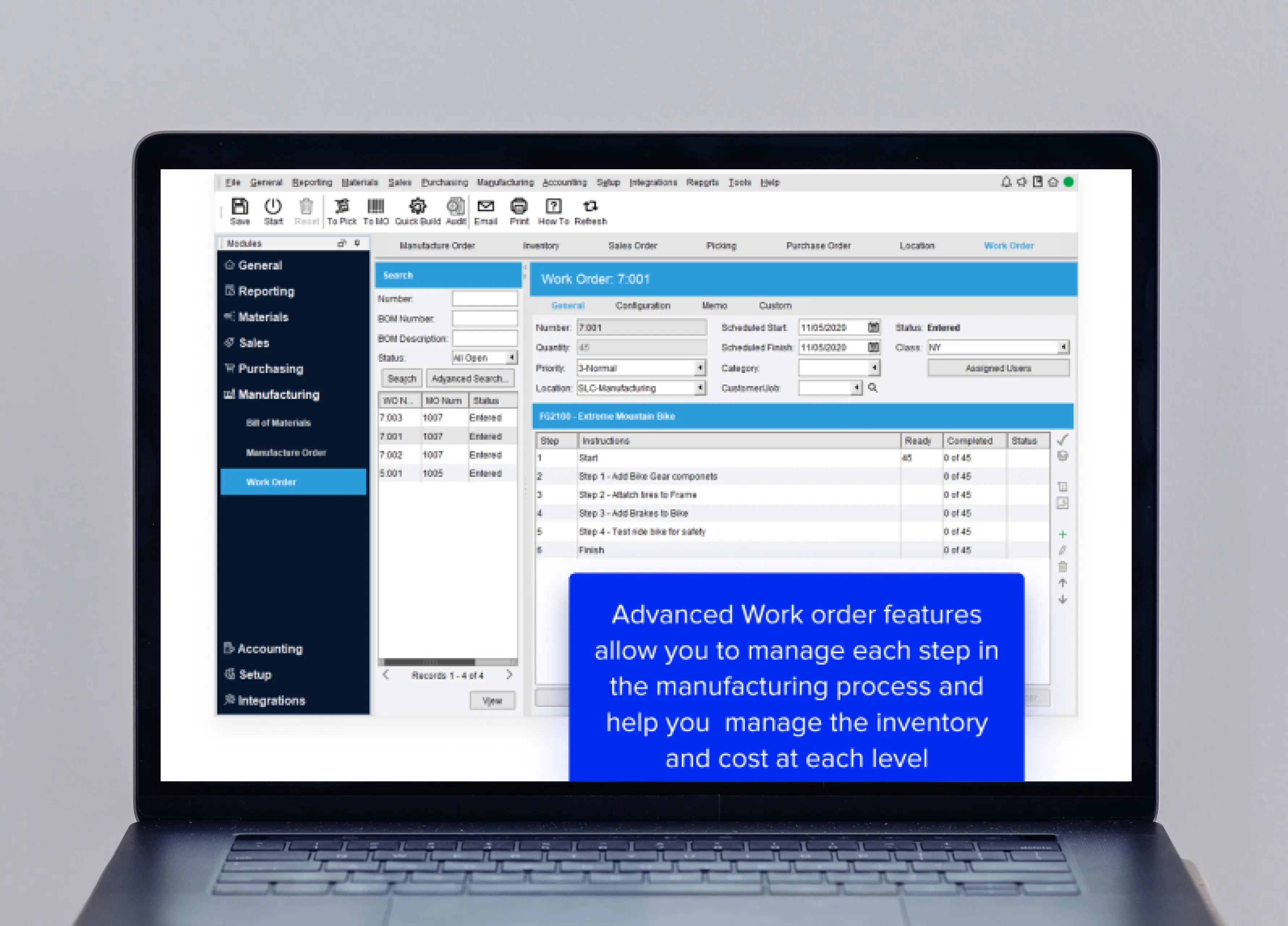
- Cost-effective and easy to use.
- Ideal for small to medium-sized businesses.
- Offers essential features for inventory and warehouse management.
9. Tecsys WMS
Tecsys is highly specialized for distribution management, particularly in healthcare and retail, but Swift offers a broader, more versatile solution that can easily be tailored for any industry. Swift also provides more advanced automation and real-time tracking, with a cloud-native design for greater flexibility in distribution management.
Why Tecsys WMS?
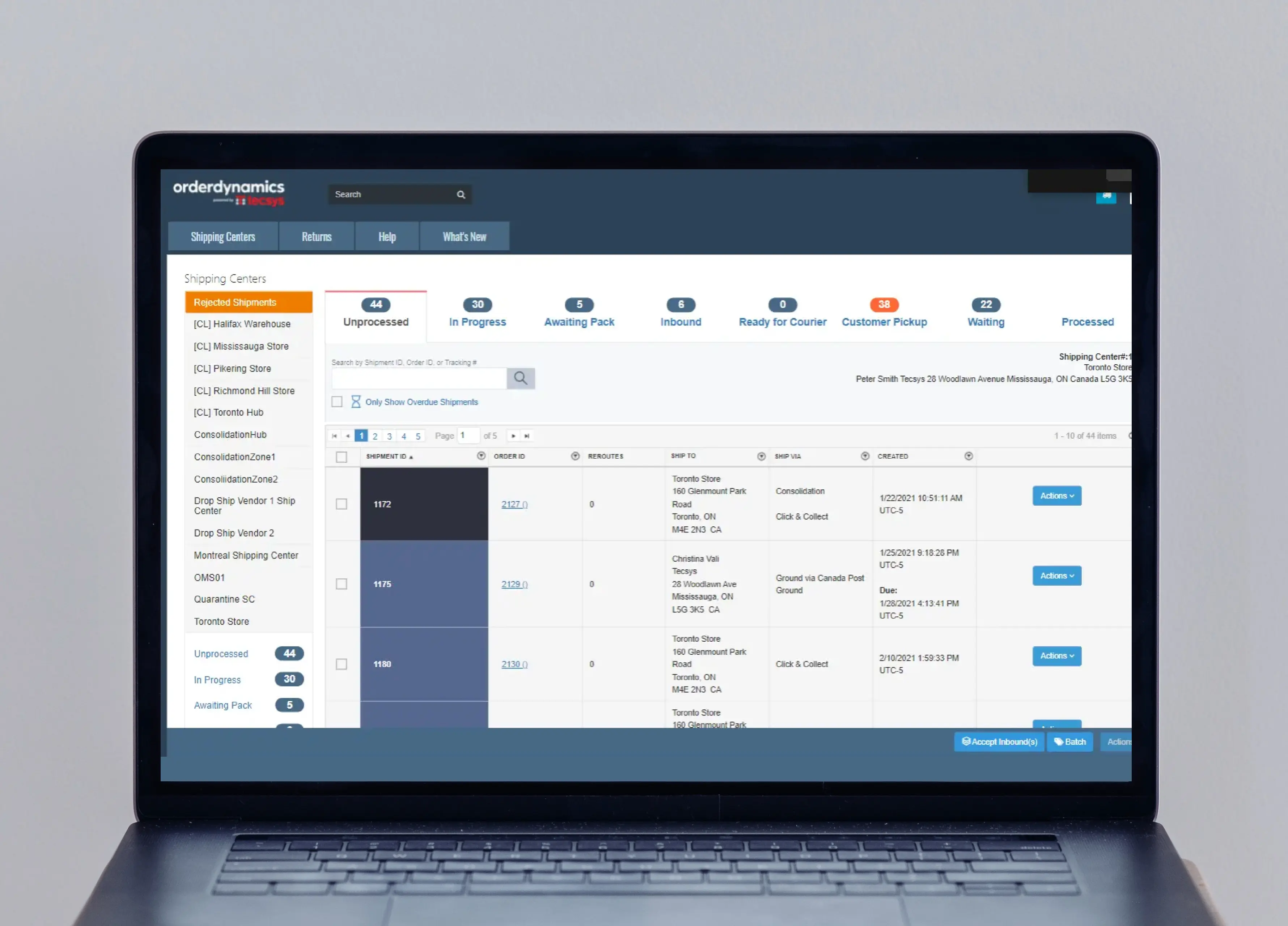
- Optimized for distribution management.
- Powerful order picking and tracking features.
- Strong in healthcare, retail, and distribution industries.
10. Locus WMS
Locus WMS leverages AI and is optimized for mobile-first operations, but Swift incorporates AI while offering better mobile integration, an intuitive design, and faster deployment. Swift provides businesses with real-time performance insights and operational improvements in a more user-friendly manner compared to Locus’ sometimes complex interface.
Why Locus WMS?
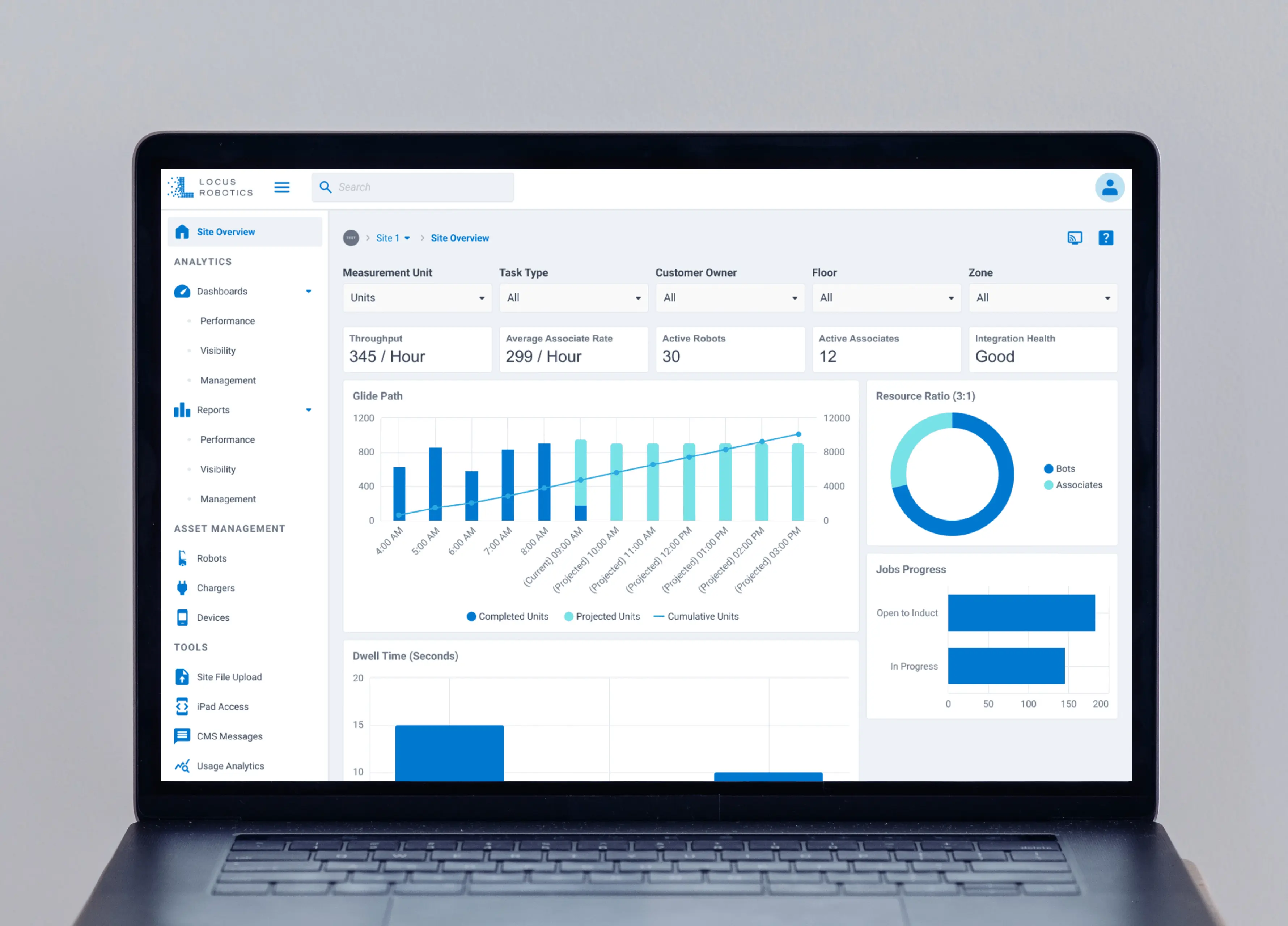
- Mobile-first and AI-driven solution.
- Real-time performance insights.
- Good for businesses looking to incorporate AI into their logistics.
11. 3PL Central
3PL Central is a great choice for third-party logistics providers with complex multi-client operations. However, Swift offers specialized features for 3PL management while remaining more flexible in terms of customization and easier to implement. Swift can scale with a growing 3PL business, making it a future-proof choice.
Why 3PL Central?
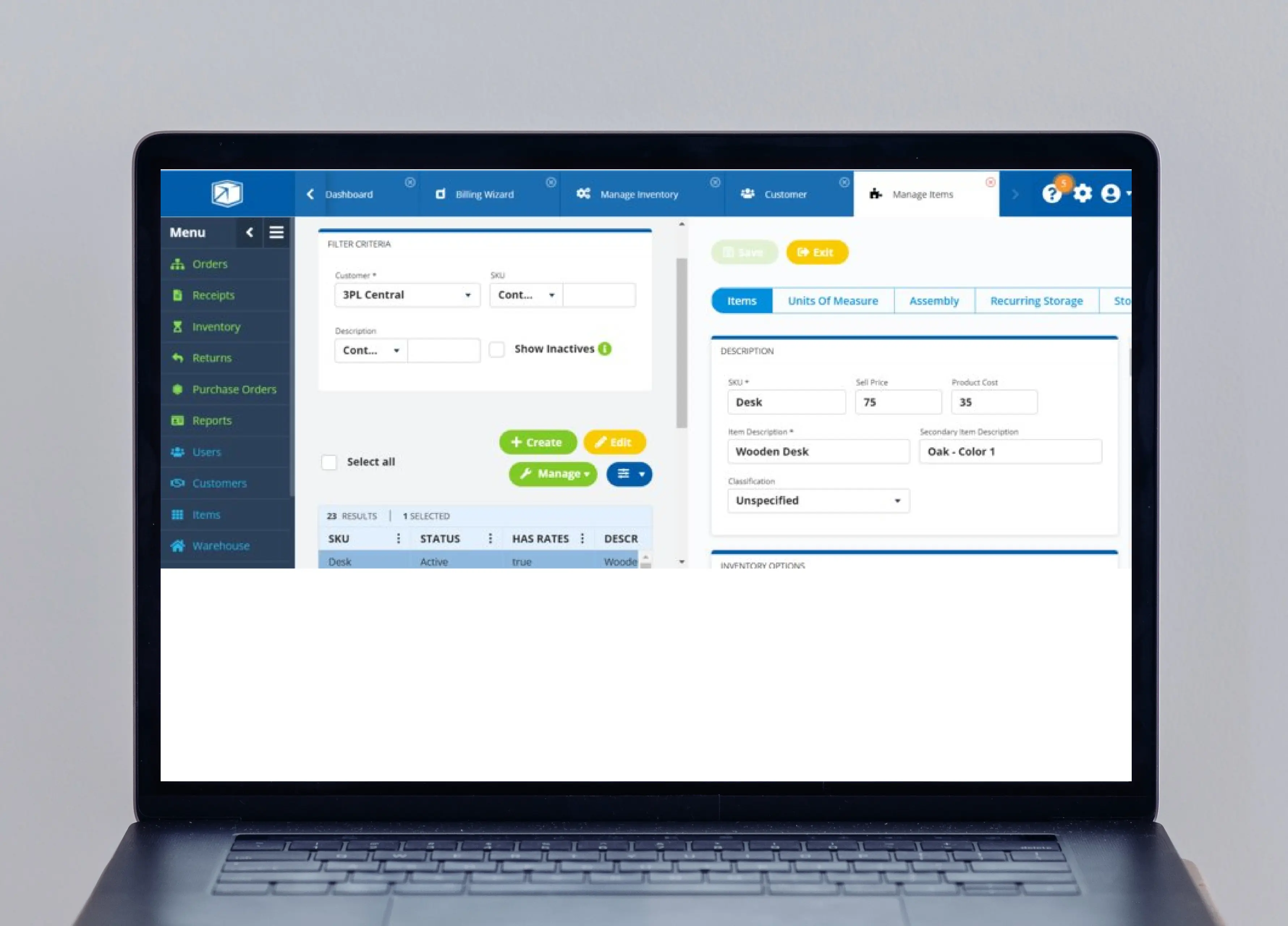
- Specialized in 3PL Operations.
- Ideal for managing multiple clients and warehouses.
- Real-time tracking and reporting.
12. Korber WMS
Korber WMS focuses on large, complex warehouse operations, with advanced optimization features. While it is well-suited for large enterprises, Swift offers similar automation and warehouse management features but with a more scalable, user-friendly design. Swift’s rapid deployment and ease of customization make it a superior choice for businesses seeking both complexity and flexibility without the lengthy implementation process.
Why Korber WMS?
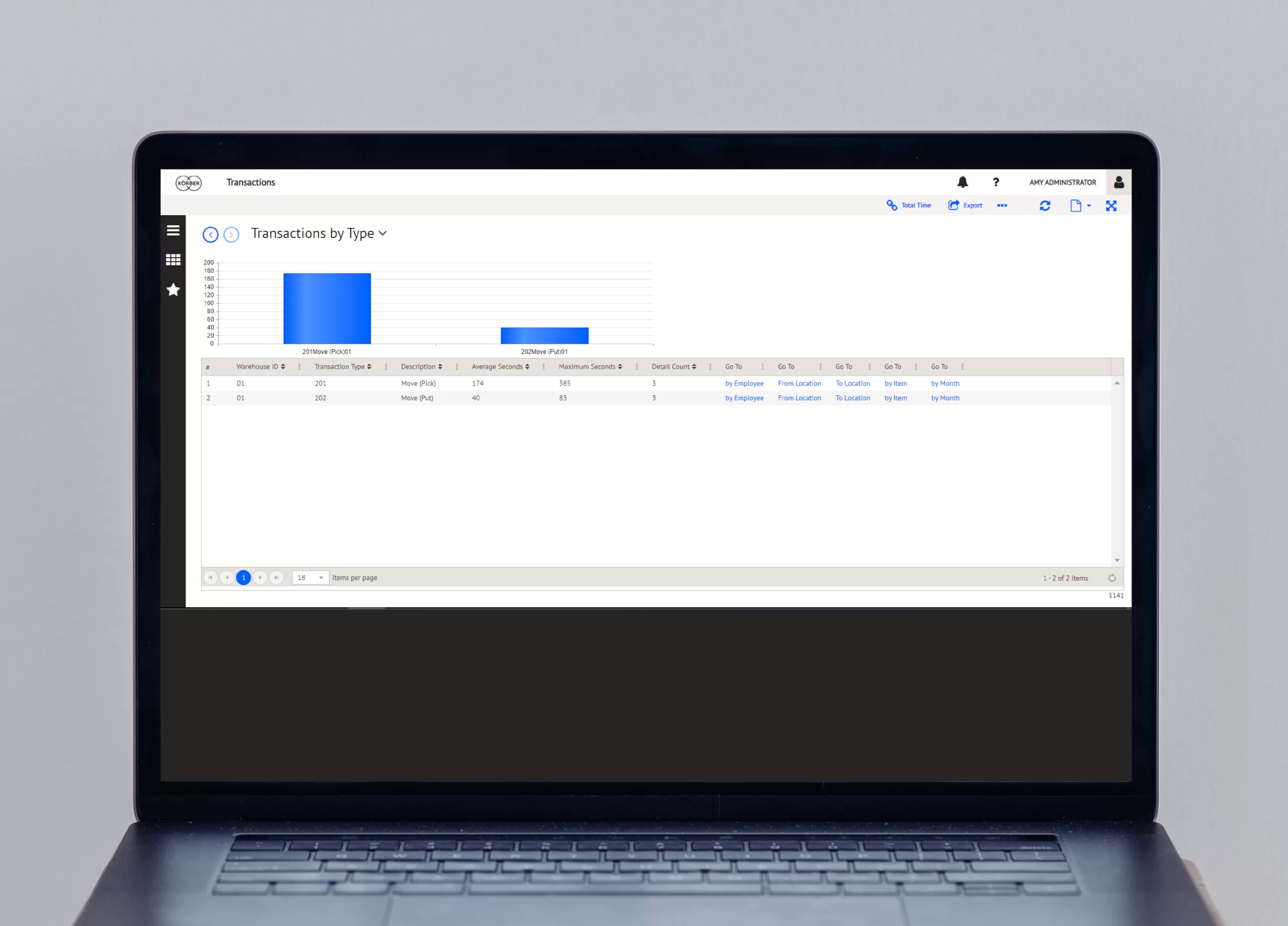
- Advanced warehouse optimization features.
- Scalable for large and complex warehouse operations.
- Supports automation and real-time monitoring.
Why Swift is the Best RF Smart MWS Alternative in 2025
When it comes to finding the best RF Smart WMS alternative in 2025, Swift stands out as the top choice. With its no-code platform, seamless integration capabilities, and cloud-native flexibility, Swift provides businesses of all sizes with the scalability and adaptability needed to streamline warehouse operations. The platform’s advanced automation, real-time visibility, and strong AI-powered analytics capabilities ensure that businesses can improve efficiency, reduce costs, and scale effortlessly as they grow.
Choose Swift for a Future-Proof Solution
Swift offers robust capabilities, from automating complex warehouse processes to integrating seamlessly with third-party systems. It is a future-proof solution that will continue to meet the evolving needs of warehouses and distribution centers worldwide, all while being easier to implement and more cost-effective than traditional WMS solutions.

For JD Edwards Users

FAQ’s
Swift Flow acts as a complementary tool to JD Edwards Orchestrator, enabling businesses to integrate mobility and multi-cloud environments seamlessly. It extends Orchestrator’s process automation capabilities by enabling real-time data synchronization and providing mobile-first solutions.
Orchestrator automates internal business processes, while Swift enables businesses to create mobile apps and portals that interact with Orchestrator’s automated workflows. This integration ensures smooth, efficient data flow and allows employees to manage processes on-the-go.
Swift enhances JD Edwards mobility by enabling the rapid creation of mobile apps that integrate seamlessly with JD Edwards E1. These apps provide real-time data updates, streamline approvals, and empower remote workers with the ability to access critical business information from anywhere.



